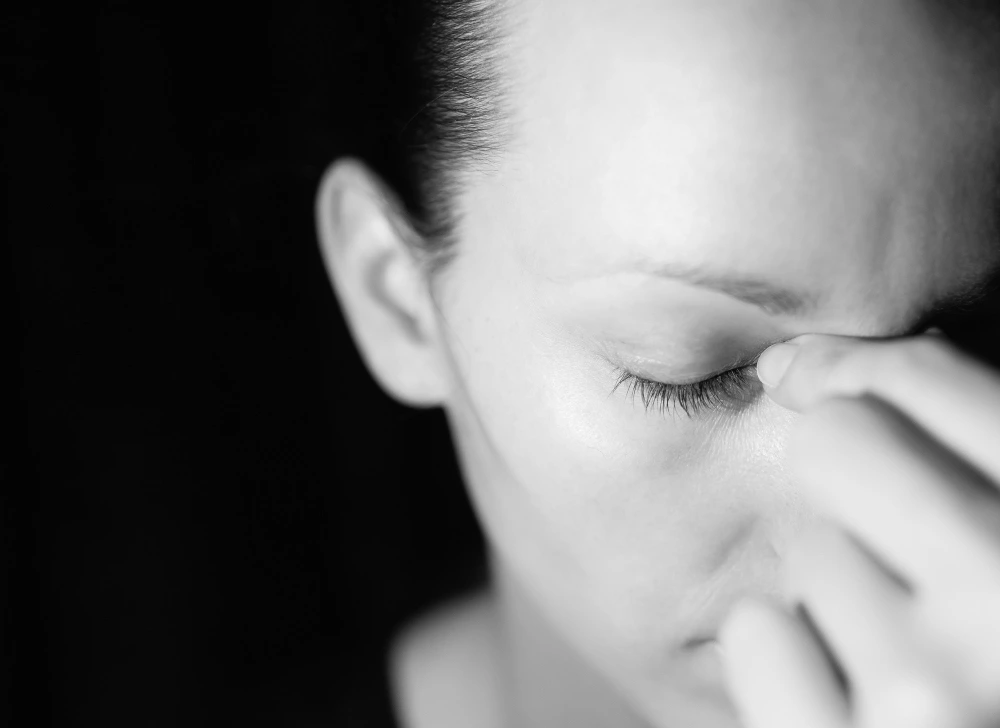According to the World Health Organization (WHO), approximately 5% of all adults suffer from depression. Additionally, about 19% of US adults have some type of anxiety disorder.
About 7% of children in the US also regularly experience anxiety. As such, depression and anxiety are some of the leading mental health issues affecting both adults and children.
But how much do you know about these conditions? Would you be able to spot the signs of depression or anxiety in a friend? Check out this guide to learn more.
Depression Guide and Overview
Depression is a mental health condition that affects approximately 6.7% of US adults each year. It is often characterized as feelings of sadness or hopelessness, lethargy, and a withdrawal from social activities.
However, depression isn’t a simple condition. It has many diverse causes and can exhibit itself in a variety of ways. Additionally, there are multiple types of depression.
Types of Depression
Contrary to popular belief, depression comes in many forms. It can last for a brief time (acute depression) or several months or years (chronic depression).
There are also quite a few specific depressive disorders, each with unique underlying causes and symptoms. Some of the most notable of these include:
- Major Depression
- Persistent Depressive Disorder
- Bipolar Disorder
- Seasonal Affective Disorder (SAD)
- Postpartum Depression
- Premenstrual Dysphoric Disorder (PMDD)
As you can see, depression has several connections to other mental health conditions and disorders. Consequently, it’s virtually impossible to self-diagnose depression.
Individuals that suspect they may be suffering from depression should seek professional diagnosis and counseling.
It’s also crucial to be aware of the various triggers that may lead to a depressive episode or feelings of depression. Doing so can help you recognize early warning signs in yourself and others.
Depression Triggers and Causes
Several things can trigger a depressive episode. Some of these factors are purely biological, while others are psychological or situational.
For example, depression’s biological causes include:
- Genetics
- Malnutrition
- Neurological Disorders
But depression can also be caused by psychological trauma, stress, or challenging life events. Examples of these types of triggers include:
- Death of a Loved One
- Losing a Job
- Divorce
- Serious Illness or Injury
- Sexual, Physical, or Verbal Abuse
- Financial Problems and Debts
- Lack of Sleep
- Work, School, or Family Pressures
- Moving Home
Many individuals with serious substance abuse problems also suffer from depression. However, depressive episodes typically lead to poor coping mechanisms, such as substance abuse.
As such, substance abuse can prolong and worsen depressive feelings. But drugs and alcohol are rarely the root cause behind depression. Instead, they prevent individuals from fully recovering, mentally or physically.
Symptoms of Depression
Depression can exhibit itself in a myriad of ways. For some, it might mean sleeping longer hours and losing interest in hobbies or social activities. For others, it might manifest as periods of crying each night and insomnia.
Because depression affects individuals in unique ways, the symptoms occasionally contradict themselves. For example, someone with depression may suddenly lack hunger and eat far less. Or, they can do the opposite.
Both are valid responses to the neurological and physiological effects of depression. It’s crucial to keep this in mind when communicating with depressed individuals and self-assessing for signs of depression.
With all that said, some of the most common symptoms of depression include:
- Prolonged feelings of sadness
- Lethargy or fatigue
- Inability to fall or stay asleep
- Sudden or excessive crying
- Irritability and anxiety
- Inability to focus
- Repetitive thoughts
- Feelings of hopelessness
Depression Advice
If you experience one or several of the above symptoms of depression, it’s essential to seek professional counseling or advice from a physician. With proper treatment, nearly all types of depression are easily managed.
Anxiety Guide and Overview
Anxiety has deep roots in both human behavior and neurology. In fact, feelings of nervousness or dread exist to help us survive. However, the fight-or-flight response is easily triggered.
When your brain perceives a threat, it immediately leaps into action, flooding your body with powerful hormones and stimulants. This concoction can help increase your physical speed and mental focus.
As such, the fight-or-flight reaction helps us either outrun a threat or fight against it. But what if you can’t do either? After all, modern threats are a far cry from sabretooth tigers.
Because the stress reaction is easy to trigger (getting caught in traffic is usually enough), the hormones that once helped us survive occasional threats are now constantly pouring through our veins.
With no way to utilize these biological stimulants, they can quickly begin manifesting themselves in negative ways. Anxiety is a common example. If you experience consistent stress, it’s easy to feel anxious.
Types of Anxiety
Just as with depression, anxiety can exhibit itself in many forms. Generalized anxiety disorder (GAD) is one of the most prevalent types of anxiety disorder, followed by:
- Social Anxiety Disorder
- Post-Traumatic Stress Disorder
- Panic Disorder
- Obsessive-Compulsive Disorder (OCD)
Naturally, it’s crucial to never self-diagnosis these disorders. Only a trained, reputable therapist or psychologist can determine whether an individual is suffering from an anxiety disorder.
That said, there are several common symptoms associated with anxiety that you can watch for. It’s also an excellent idea to familiarize yourself with the factors that often trigger or influence anxious feelings.
Anxiety Triggers and Causes
As you might expect, stress is one of the leading causes of anxiety. Excessive amounts of stress due to work, financial, or familial challenges can lead to recurrent feelings of anxiety.
Generally, the most common causes behind anxiety disorders include:
- Poor dietary habits
- A sedentary lifestyle
- Substance abuse
- Extreme stress
- Financial worries
- Depressive episodes
- Social conflicts
- Lack of sleep
However, this is only a brief list. Many people with anxiety disorders experience unique personal triggers. Keeping a feelings journal is an excellent way to identify potential anxiety triggers.
Symptoms of Anxiety
Do you believe that you or someone you know may be suffering from an anxiety disorder? If so, you’ll definitely want to contact a mental health professional in your area for further advice and counseling.
Still, there are several symptoms associated with anxiety and anxiety disorders. Familiarizing yourself with these symptoms may make it easier for you to identify anxiety in yourself and others.
Common signs of anxiety include:
- Irritability
- Restlessness
- Insomnia
- Biting Nails
- Racing Thoughts
- Inability to Focus
- Shaking or Trembling
- Obsessive Worrying
Anxiety Advice
Those struggling with anxious feelings shouldn’t hesitate to seek professional medical advice and treatment. Intense anxiety can interfere with your everyday life, but proper intervention can help.
Many forms of anxiety are entirely manageable. Speaking with your healthcare provider can help you design a treatment plan that suits your needs and preferences.
Overcoming Depression and Anxiety
Depression and anxiety both stem from neurological responses, and as such, they’re both treatable. Additionally, there are several potential treatment options from which to choose.
Often, a combination of treatment methods is the most effective solution. Therapy, prescribed medication, lifestyle changes, and healthy coping mechanisms can reduce the symptoms of depression and anxiety.
Would you like to speak to a counselor or therapist? If so, please reach out to us today! We look forward to hearing from you.




